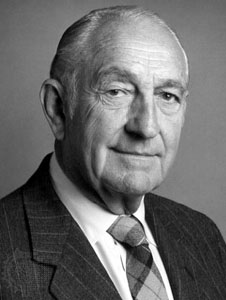A Quote by Peter Drucker
People who don't take risks generally make about two big mistakes a year. People who do take risks generally make about two big mistakes a year.
Related Quotes
If I had to give you one piece of advice, it would be this: don’t be intimidated by other people’s opinions. Only mediocrity is sure of itself, so take risks and do what you really want to do. Seek out people who aren’t afraid of making mistakes and who, therefore, do make mistakes. Because of that, their work often isn’t recognized, but they are precisely the kind of people who change the world and, after many mistakes, do something that will transform their own community completely.
I think that's something that investment banks have worried about for a long time and are continuing to worry about, but it's not an easy solution when you have lots of people betting the company's money, how do you really allocate those risks? How do you make sure that the people that take the risks are feeling the risks in an appropriate kind of fashion?
The Proverbs 31 woman is a star not because of what she does but how she does it—with valor. So do your thing. If it’s refurbishing old furniture—do it with valor. If it’s keeping up with your two-year-old—do it with valor. If it’s fighting against human trafficking . . . leading a company . . . or getting other people to do your work for you—do it with valor. Take risks. Work hard. Make mistakes. Get up the next morning. And surround yourself with people who will cheer you on.
I think you've got to take the risks. There's no point playing it safe, because either you'll get bored or the audiences will get bored. Sometimes, you're going to make mistakes, and that's fine, but you have to take the risks. I think Pirates is one of the prime examples of that with Johnny Depp's performance, and part of the reason that people love it so much is that you watch it and go, "Gutsy, really gutsy!"
I'm an indulgent writer - I'm not sure, however, that's something I'm interested in changing. Writing should be indulgent: you should take big risks on the page, you should make big mistakes, you should be excessive at times. I let myself do as a writer what I probably would be less likely to allow as an editor.
In terms of getting people to experiment more and take more risk, there are at least three things that immediately come to my mind. Number one, of course, is role-modeling it yourself. Number two is when people take intelligent, smart risks and yet it doesn't work out, not shooting them. And number three, being honest with yourself. If the culture you have is radically different from an experiment and take-risk culture, then you have a big change you going to have to make—and no little gimmicks are going to do it for you.



































